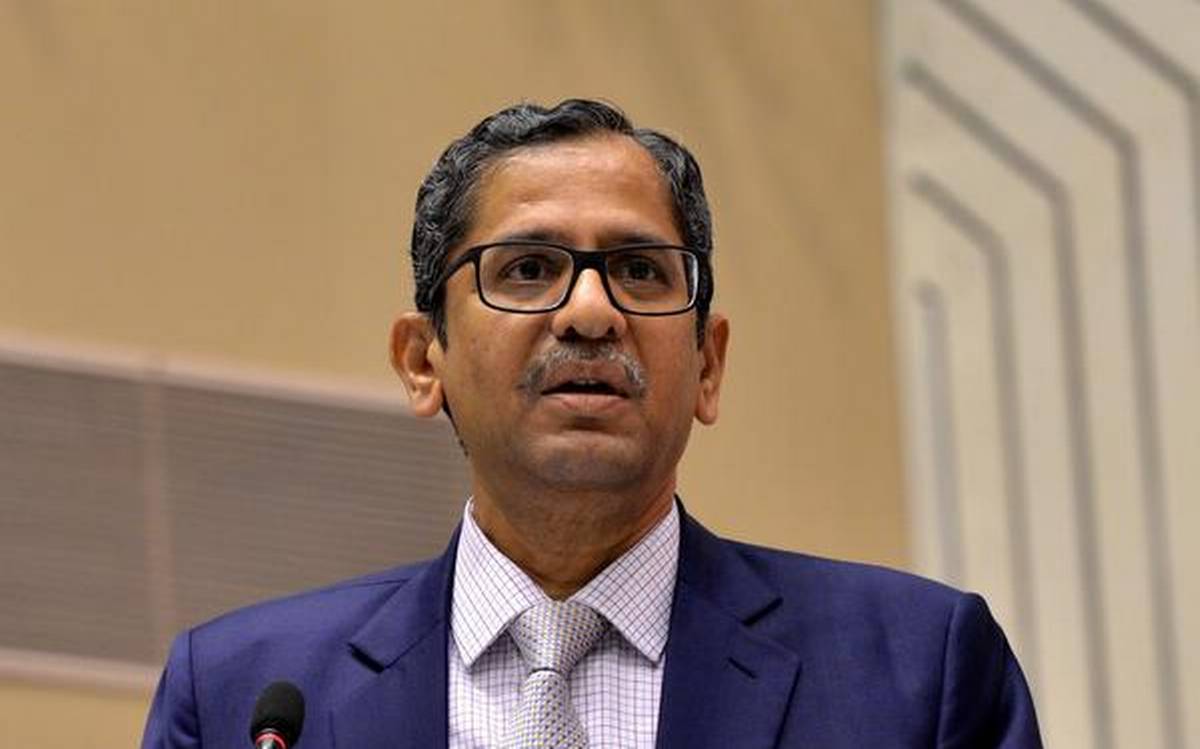Latest News
Justice NV Ramana releases NALSA's National helpline number and 'Handbook of formats: ensuring effective legal services'

Speaking at a webinar on Thursday, Supreme Court Judge, Justice NV Ramana emphasized on the need to provide door-step legal remedies during the prevalent crisis created by the pandemic.
"During such times, when the victims cannot reach us, it imperative for us to reach them," he said while highlighting the plight of women and children during the lockdown.
Justice Ramana, also the Executive Chairman of NALSA, was speaking at the launch event of NALSA's 'Handbook of Formats: Ensuring Effective Legal Services'.
He expressed concern over the spike in reported domestic violence and child abuse cases during the lockdown and assured that "persistent efforts" have been undertaken by the authority to provide legal assistance to the victims.One of the crucial aspects that came to our attention has been soaring violent behaviour within the family itself. We've also seen increasing
reports of child abuse cases. When the victims can not contact us at these times, it is imperative that we contact them. Recognizing the magnitude of the situation we built One Stop Centers (OSCs). We have made persistent efforts to provide legal aid. Persistent efforts have been taken to provide legal assistance, through teleservices of female Panel Lawyers in every district. In other matters, petitions have been filed under the Domestic Violence Act," he said.
Pertinently, NALSA has also released a Toll free National Legal Helpline 15100, to ensure that no person in need of justice is denied the same.
Justice Ramana underlined the active role played by the Legal Service Authorities across the country to ensure decongestion of prisons during the pandemic.
"As per the directions of the Supreme Court, the SLSAs have actively assisted High Powered Committees to identify and complete the necessary formalities for the release of prisoners, both undertrials and convicts, during the pandemic," he said.
He noted that, as many as 58,797 undertrial prisoners and 20,972 convicts on parole etc. had been released with the assistance of the Legal Services Institutions and legal representation had been provided to 9,558 persons at the remand stage.
He also touched upon the looming migrants issue and said, "Massive reverse migration will invariably lead to increase in poverty, inequity and discrimination."
The Handbook, prepared in collaboration with the Commonwealth Human Rights Initiative, is an attempt to improve the quality of legal services by strengthening documentation and reporting by Legal Services Institutions across the country. It contains formats that will enhance data collection, enabling NALSA to analyse trends and patterns emanating from data, and identification of issues at the micro level.
The Handbook consists of two sections. The first section contains formats for legal aid providers i.e. panel lawyers, retainer lawyers, remand lawyers, jail visiting lawyers and lawyers attached to police stations and for community and convict paralegal volunteers. The second section includes formats for Legal Services Institutions including registers for the Front Office, attendance registers, clinics and for the Monitoring and Mentoring Committees.
"Handbook is the first vital step towards standardisation and consistency in the use of formats. This handbook is an effective tool for management of human resources and in future will prove as a small but significant step in realizing justice for all," Justice Ramana said in his keynote address.
The webinar was also attended by Ashok Kumar Jain, Member Secretary, NALSA; Mr Alok Agarwal, Former Member Secretary, NALSA and Mr Sunil Chauhan, Director, NALSA, who all reiterated the significance of the Handbook as an effective tool for management of legal services activities.
Document:



































































































